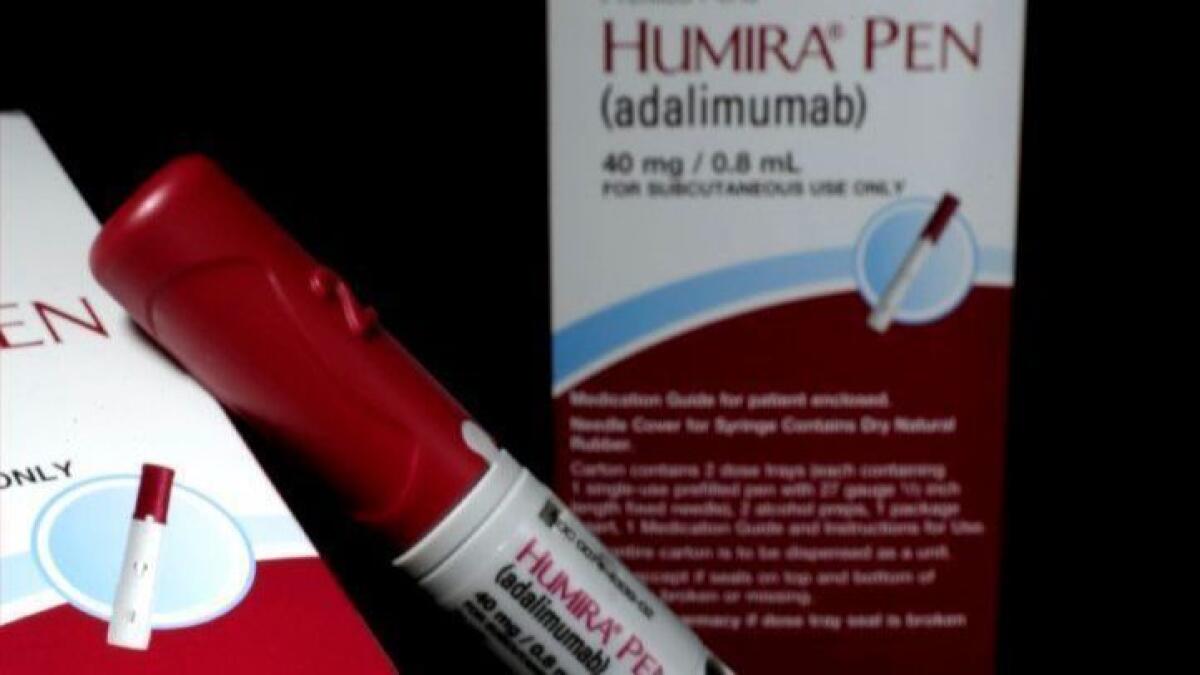Drugmakers raise 2020 medicine prices despite lawmakers’ ire

The public outcry over the high price of medicines did little to stop drugmakers from raising prices again for 2020.
Prices have increased an average of 5.3% so far this year, according to consultant firm 3 Axis Advisors. Some of the biggest increases from large drugmakers so far come from Pfizer Inc.’s blockbuster vaccine Prevnar and AbbVie Inc.’s bestselling arthritis medicine Humira. The price of each was raised by just over 7%.
“Double-digit increases largely appear to be a thing of the past,” Bloomberg Intelligence analyst Brian Rye said. Many drugmakers have vowed not to increase drug prices more than 10%. People with insurance generally pay much less than the list price of a drug.
Some key drugs, such as Merck & Co.’s top-selling cancer drug, Keytruda, have yet to see higher prices, according to data compiled by Evercore ISI’s Umer Raffat. But last year’s price increases didn’t occur until a few days into the new year, the analyst said.
Companies may be delaying some of those increases until later this month to escape early-January scrutiny, Bernstein analyst Ronny Gal said in an email. Although it’s too soon to tell, Gal expects price hikes may go up modestly from last year. So far, 85 drugmakers have reported price increases on more than 300 drugs, according to 3 Axis analysis.
Rivaroxaban, adalimumab, empagliflozin: Someone actually has to come up with generic drug names like these.
The moves to increase drug prices come as bipartisan efforts advance in Congress to curb the costs of prescriptions. Lawmakers have been sounding the alarm over the need for reform, but so far only minor changes have been pushed through.
“In terms of potential legislation, nothing is imminent, but investors should circle May 22 on their calendars,” Rye said. “That’s the health-extender deadline Congress established a couple of weeks ago in the government-spending bill. Policymakers could use drug-pricing and/or surprise billing reforms to offset the cost of long-term extensions for those non-controversial programs.”
The price of Opdivo, Bristol-Myers Squibb’s rival cancer medicine to Keytruda, rose 1.5% for 2020. Bristol increased the price of another cancer drug, Revlimid, by 6%. It acquired the drug with its purchase of Celgene, which closed in November.
Gilead Sciences Inc. increased prices 4.8% on its top five HIV medicines, Biktarvy, Genvoya, Truvada, Odefsey and Descovy — similar to last year’s increases, according to Piper Jaffray analyst Tyler Van Buren. Truvada and Descovy are now priced the same ahead of a generic Truvada expected later this year, Van Buren said.
Democratic lawmakers have accused Foster City, Calif.-based Gilead of delaying Descovy development and commercialization to maximize profits from Truvada before a key patent expires. Van Buren said Gilead’s price increases “appear reasonable” and similar to other large drugmakers’ 5% increases for the year.
“Gilead is increasing list prices by 4.9% across its HIV portfolio. We do not anticipate that this change will affect access to our medicines. The list price of a medication does not reflect the actual costs borne by patients or health systems. Both public and private payers receive significant rebates on the medicine’s list price,” the company said in an emailed statement. “Prices paid for HIV medications by government programs, such as Medicaid and the 340B Program, are much lower than the list price.”
Biogen Inc. raised prices 2% to 6% on its multiple sclerosis drugs, with most of the increases matching last year’s price hikes. “The more things change, the more they stay the same,” Piper Jaffray analyst Christopher Raymond wrote. “We continue to see business as usual on this front, despite years now of intense political attention.”
More to Read
Inside the business of entertainment
The Wide Shot brings you news, analysis and insights on everything from streaming wars to production — and what it all means for the future.
You may occasionally receive promotional content from the Los Angeles Times.










